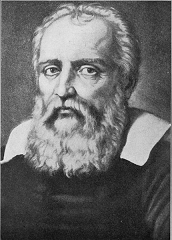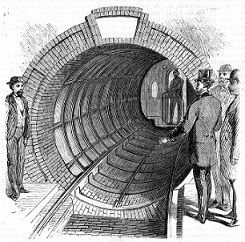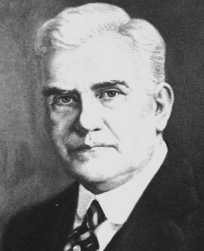Historic Scientific Events That Happened On February 26
Today is 26 of February, certain events occurred based on history as they are included below.
February 26, 1616: Galileo warned About The Copernican theory
This article is sponsored by Mechanic Assistant
On 26 of February in 1616, cardinal Bellarmine told and warned Galileo Galilei not to teach, hold or defend Nicholas Copernican theory. This theory was about the earth revolving around the sun. In 1633, a transcript was filed by inquisition that Galileo should not speak or write anything concerning the theory. Despite the challenges surrounding Galileo, he stayed against the church. Later, he was interrogated by the Inquisition in April 1633. On 22 of July 1633, Galileo was sentenced to prison with seven of ten cardinals that presided his trial that affirmed the sentenced order.
He signed a formal recantation which led to him to be alive, by the pope but his being alive would be to live under a house arrest. From the time he was sentenced until his death on the 8 of January 1641, Galileo remained in his house at Florence. All the years he lived was 77 years.
Did you know that Galileo Galilei was an Italian natural philosopher who made effort in applying new techniques to scientific discoveries in astronomy and in physics. One of his accomplishment was the perfecting of telescope though he did not invent it. His ideas were in conflict with the religious people that was what led to one of his problems. In all, he made an impact.
February 26, 1870: The Opening of the Pneumatic subway
On this day in 1870, a pneumatic powered subway line was opened in New York to the public. The subway included a waiting room that is 120 feet long, although the entire subway was 312 feet. The subway was furnished with a grand piano, ornate paintings, a fountain, and candelabra so that the customers would not feel bored and afraid while they were entering the dank tunnel.The car used in the subway has 22 seats, and with it, a wonderful and comfortable ride would be experienced. That left a great impression in the heart of its observers. Its propulsion was provided by a big giant fan which was nicknamed by the workers as “the western Tornado”. Operated by a steam engine that draws air through a valve and then blows it forcefully into the long tunnel.
Did you know that the pneumatic subway was created by Alfred Ely Beach. This invention has been recorded up till today. He invented a pneumatic tube subway and a tunneling shield. The tunnel operated from 1870 to 1873 because of the distance of the tunnel. For it was short. Another invention was the invention of a typewriter for the blind that looks like the modern typewriter. He was able to win the First prize and also a gold medal for his great accomplishment.
February 26, 1878: The Day The Name “Microbe” Was Given
You want to know when the word microbe was given, It was today in 1878. A French scientist named Sedillo talked with Littre regarding micro-organisms. He was asking for a suitable name that would suit them, then Littre wrote to him that the name he chooses would be the word “Microbe” instead of “Microbia”. Even though this word was diced out from two Greek words that are together which mean “short-lived” or you can say “Short life”.Did you know that the Name was first used by Charles Sedillo on Monday, February by 4:30 in the afternoon? In an assembly hall of an Academy of science at Paris. He said that these atmospheric germs have been called different names like chizophytes, mioroshores, leptothrizes, micrococci etc..Further, He said it would be an advantage to give it a name from all denominations, a simpler name for the current. That was
how the name came about.
February 26, 1895: The Glass Blowing Machine
On this day 1895, a Man named Michael Joseph Owens of Toledo invented a glass blowing the machine that has the ability to produce five pieces at same time. This is done by the placement of five molds that surrounds the molten glass in front of a particular blowing pipe. Without roughness and without seams were each piece made. Late Owens was the co-founder of the glass industry that was located in Toledo. The years passed by and suddenly in 1903, he put together the Owens Bottle Machine Company. He didn’t stop making an improvement, he continued until 10 of May 1904 when he finally perfected his machine. However, this inventor held 45 patentsDid you know that the world’s first fully finished the automatic machine he invented was the glass bottle making. This helped to eliminate and reduce child labor from various glass bottling factories which he himself has experienced in order to provide some money for his coal mining family. He had a machine capable of producing four bottles in one second.
February 26, 1896: Radioactivity Disclosed
Henry Becquerel once wrapped and stored a photographic plate in a black paper inside a desk drawer and he laid phosphorescent uranium compound on the top while waiting for daylight to carry out his idea which he presumed that the sunlight would certainly make the phosphorescent uranium to emit rays. For several days he kept it there.Accidentally, he developed or created a new experiment, although, on 1 March 1896 when he developed the photographic plate, he was able to find a fogged image in shape of rocks. This found material by Henri was spontaneously emitting and generating rays without the help of the sunlight. This was a great discovery by him.
At first, the crystals out of sunlight couldn’t fluoresce that was when he accidentally discovered that salt was the source of penetrating radiation. After 3 years, he disclosed that rays where charged particle due to the deflection in a magnetic
field. This form where radiation is being penetrated was the discovery of radioactivity.
Did you know that Henri Becquerel was a French physicist who was recognized for his work and was awarded a noble prize in physics with Marie Curie and Pierre.
Radar
(RAdio Detection and Ranging). The feasibility of radar was made known and shown to Air Ministry Officials at Daventry in England. Robert Watson-watt invented the known radar used in the world. In his earlier stages, while he was working on ways to use radio-waves detection to get the location of thunderstorm so that warnings can be given to airmen whenever there was going to be a thunderstorm,he found out that it could also be used to track an enemy’s aircraft in order to defend and know when to attack while on air.On the test, it showed that a Heyford bomber flew across the BBC radio transmitter and its feedback was gotten from the ground for some couple of times that the aircraft passed. In 1939, when the World War 2 started, England military installed a chain of radar stations in the east and south so to prevent the germans invasion.
Did you know that Robert Watson-watt was a Scottish physicist, and studied at St. Andrews University. He was the one who brought the term “ionosphere”.
February 26, 1992: The shutdown Of an Atomic Energy Reactor
This day in 1992, Yankee Atomic Electric company nuclear reactor was shut down. Its shutdown was due
to the embrittlement of the reactor vessel. This reactor served for more than 31 years for the United States as it was the third atomic reactor in the United States and it was the first in producing electricity commercially. The plant was worth 57 million dollars and began its power distribution in 1960, and was known for its self-sustaining nuclear reaction.
Did you know that 125,000 kilowatts of electricity was produced by this atomic energy reactor and the company was formed by twelve England companies.
February 26, 1991: The Introduction Of The First Web Browser-WWW
In 1991, the first web browser and the HTML editor, WYSIWYG (what you see is what you get) was shown to everyone by Sir Tim Berners- Lee. The name of the browser was called WorldWideWeb and later it was changed to NEXUS, this has led to some advancement in computers of today with several browsing platform.
He ran the browser on NEXTSTEP platform and he manipulated it with not only the File Transfer Protocol (FTP) but with also the HyperText Transfer Protocol (HTTP). The Nexus browser is no longer in production anymore.
REFERNCE
Refernce 1
Reference 3
Reference 4
Reference 5
Reference 6
This article is sponsored by Mechanic Assistant






Being A SteemStem Member
interesting piece. kudos
Thanks brother...I really do appreciate.